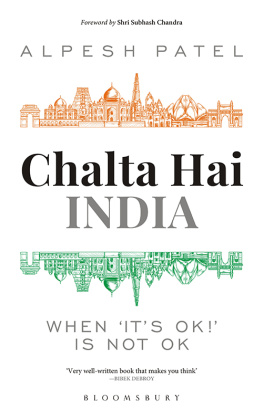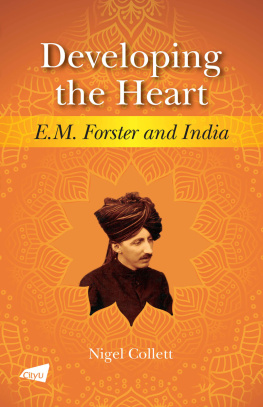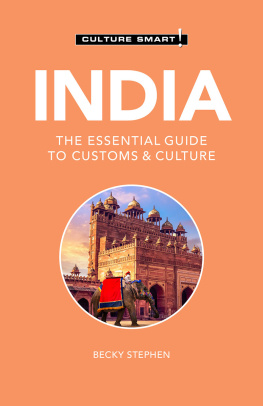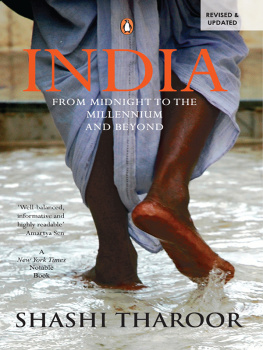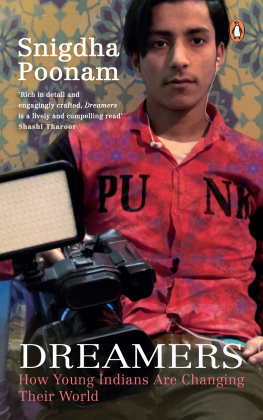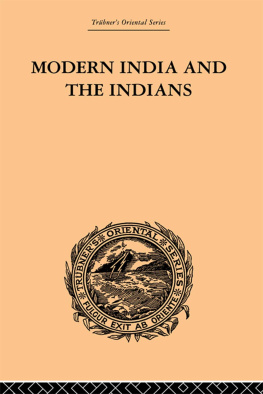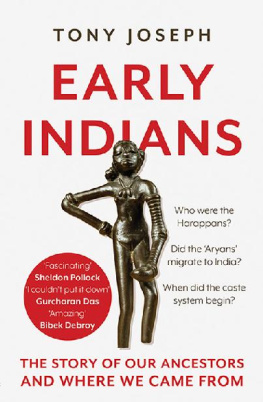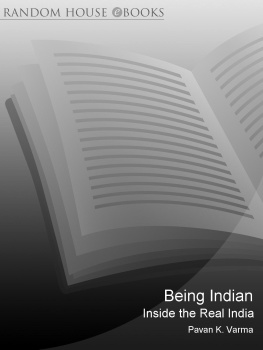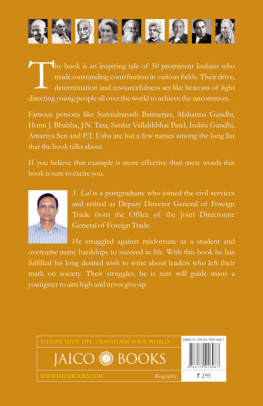Table of Contents

Chalta Hai India
Chalta Hai
INDIA
WHEN ITS OK!
IS NOT OK
Alpesh Patel

The book Chalta Hai India is a very compelling and essential reading. A well-researched book that is imperative for India. The author, Alpesh, makes every reader think for bringing in an attitudinal change for a better India.
Dr Kiran Bedi
Honble Lieutenant Governor of Puducherry
This is a very well-written book that makes you think. As citizens, we take things for grantedthe business-as-usual scenario, what Alpesh Patel calls the Chalta Hai (CH) attitude. There are several examples he uses to illustrate the CH syndrome. You do not have to agree with every word he writes, as long as it makes you think. India cannot afford to remain a CH nation and citizens have to be instrumental in bringing about change. This is precisely what the Prime Minister has in mind.
Bibek Debroy
Chairman, Economic Advisory Council to the
Prime Minister, and Member, NITI Aayog
Alpesh has written an important and original book requiring excellent analytical skills and courage. We need to start a movement to shake our youth out of this comfort with mediocrity.
Rajiv Malhotra
Eminent author and public intellectual
In this readable treatise, Alpesh succinctly brings out the unpleasant fact that inadequacy is often tolerated and accepted in India. Deeply researched and rich in thought-provoking arguments, this book is a must-read for all those who want to see India in a better shape. Sure to inspire a nationwide debate on Chalta Hai in India.
GN Bajpai
Former Chairman, SEBI and LIC
Alpeshs book holds up the mirror to the unique Indian quirk of Chalta Hai. He employs different stylesthat of a psychologist deciphering drivers of human behaviour, of an engineer probing a phenomenon, and of a storyteller throwing interesting anecdotesand makes us pause and think. An eminently readable book.
Sudhir Pai
CEO, Magicbricks
BLOOMSBURY INDIA
Bloomsbury Publishing India Pvt. Ltd
Second Floor, LSC Building No. 4, DDA Complex, Pocket C 6 & 7,
Vasant Kunj New Delhi 110070
BLOOMSBURY, BLOOMSBURY INDIA and the Diana logo are trademarks of
Bloomsbury Publishing Plc
First published in India 2018
This edition published 2018
Copyright Alpesh Patel, 2018
Alpesh Patel has asserted his right under the Indian Copyright Act to be identified as Author of this work
All rights reserved. No part of this publication may be reproduced or transmitted in any form or by any means, electronic or mechanical, including photocopying, recording, or any information storage or retrieval system, without prior permission in writing from the publishers
Bloomsbury Publishing Plc does not have any control over, or responsibility for, any third-party websites referred to or in this book. All internet addresses given in this book were correct at the time of going to press. The author and publisher regret any inconvenience caused if addresses have changed or sites have ceased to exist, but can accept no responsibility for any such changes
ISBN: TPB: 978-9-3880-3866-9; eBook: 978-9-3880-3868-3
2 4 6 8 10 9 7 5 3 1
Created by Manipal Digital Systems
Printed and bound in India
Bloomsbury Publishing Plc makes every effort to ensure that the papers used in the manufacture of our books are natural, recyclable products made from wood grown in well-managed forests. Our manufacturing processes conform to the environmental regulations of the country of origin.
To find out more about our authors and books visit www.bloomsbury.com and sign up for our newsletters
To my loving parents,
for their genes, guidance, and inspiration
CONTENTS
PART THREEWhy This Take It Easy Policy?
The Big Five Reasons
At the time when Britishers came to India, our contribution to the international trade was around 23 to 25 per cent. They came with a motive and fulfilled it. But what happened since independence in the past seven decades is our own making, and we cannot hold them responsible for the same. Nor is it our politicians fault alone; its ours too and of our Chalta Hai attitude.
In every walk of life, whenever we find something wrong somewhere, we almost always think Mujhe kya?; someone else will fix it. And we forget that we are also a part of the overall society. When we expect governments to do everything for us, the cost is too high. Its time we pause and ask ourselves, Why would we want an expensive solution?
Along with the Chalta Hai syndrome, another syndrome that must bother the nation is Mujhe kya? Today, many cases of deaths in road accidents happen because the patient does not get immediate medication as often bystanders dont bother calling the helpline on time. Why is that? Because often we think, Mujhe kya! But, we were not always like this; we were a nation which had always worked for others.
Not just in the fields of infrastructure, sports, education, films, and manufacturing, but in almost all sectors we havent reached where we shouldve, and the prime reason for that is our Chalta Hai attitude. Youll find detailed examples proving this point in the first few chapters of this book.
Alpesh has cited various examples from 1500 BC till date to explain that we didnt always have a Chalta Hai attitude. In our long civilisational history spanning thousands of years, weve developed this attitude only in the recent history of a few hundred years. In the latter part of the book, Alpesh has referred to incidents where invaders overpowered us using devious means as cases of Chalta Hai attitude. Yes, the invaders backstabbed us, but not because we possessed a Chalta Hai attitude, but because we perceived others from the perspective of dharmic values that we strived to live by. Bharat has been a land of dharma from time immemorial, and so we expected that the invaders and our neighbours too will uphold similar values. Here, I am not referring to dharma as a religion, as it is understood nowadays but dharma as righteousness. The great civilisation that we are, we have considered power not as might but as something that makes one reasonable and just even when one has the might to not be. Alpesh has elaborated this at various places in the latter chapters.
I have always told everyone, Never take NO for an answer, and I deeply believe that until you accept failure, you havent failed. You fail or you give up when you think that youve failed or when youve accepted that things cant change anymore. But if you dont accept it as a failure then youll keep trying.
India wants to achieve the greatest heights and India will achieve such heights. But the attribute separating our want and surety of will is (lack of) our WILL (willpower), which is deficient because of our Chalta Hai attitude.
We meet many people who offer suggestions that we must do this, we must do that. Okay! We need to do so much, but what will you do? I firmly believe in teamwork but even in a team, every individual has to play his/her part, and if one fails to do so, the team will suffer. Hence, it shouldnt be just We should do this, but also, I will do that, and thats how the Chalta Hai attitude will end by taking accountability on ourselves. Even our scriptures have specifically stressed on what I ought to do as an individual. We are responsible and accountable for our own

